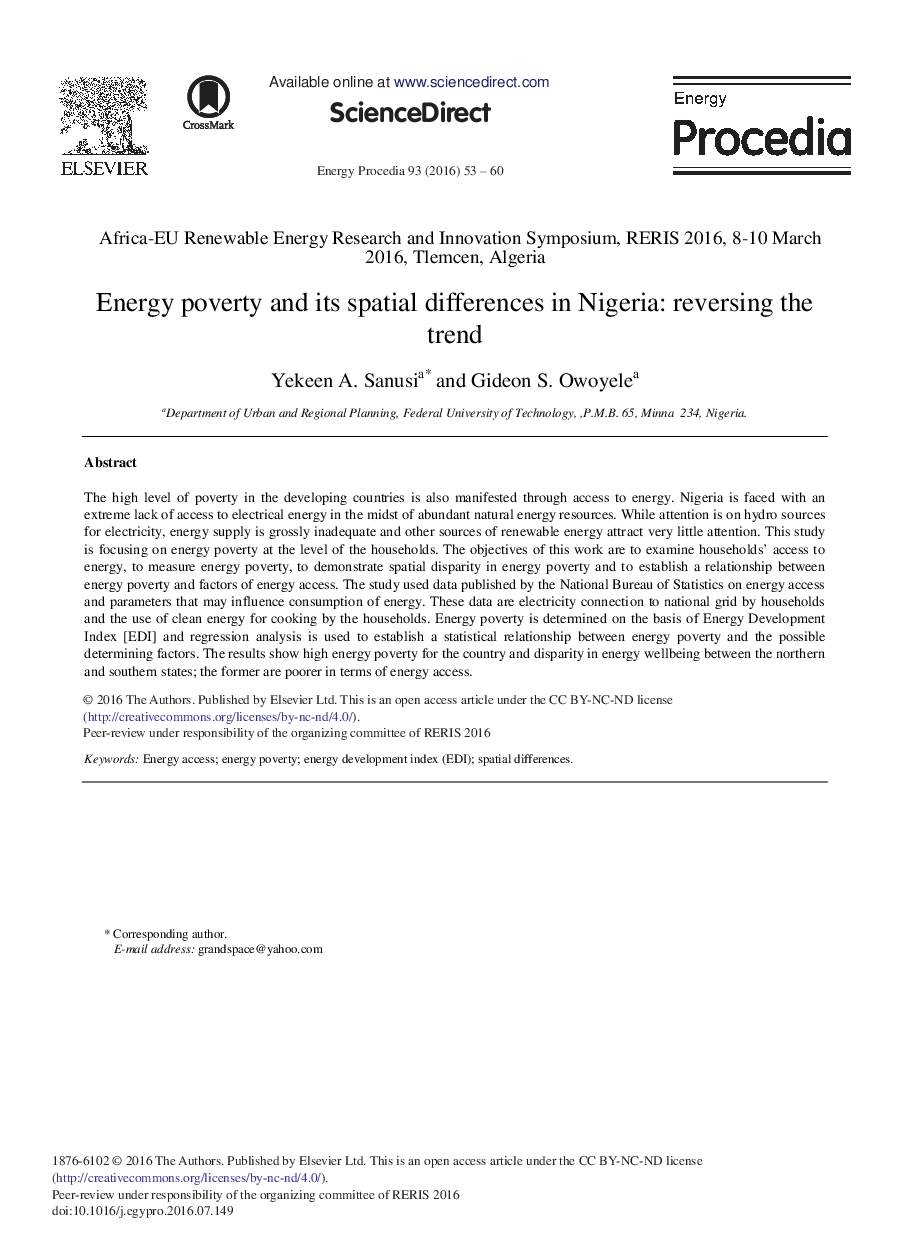| Article ID | Journal | Published Year | Pages | File Type |
|---|---|---|---|---|
| 5447024 | Energy Procedia | 2016 | 8 Pages |
Abstract
The high level of poverty in the developing countries is also manifested through access to energy. Nigeria is faced with an extreme lack of access to electrical energy in the midst of abundant natural energy resources. While attention is on hydro sources for electricity, energy supply is grossly inadequate and other sources of renewable energy attract very little attention. This study is focusing on energy poverty at the level of the households. The objectives of this work are to examine households' access to energy, to measure energy poverty, to demonstrate spatial disparity in energy poverty and to establish a relationship between energy poverty and factors of energy access. The study used data published by the National Bureau of Statistics on energy access and parameters that may influence consumption of energy. These data are electricity connection to national grid by households and the use of clean energy for cooking by the households. Energy poverty is determined on the basis of Energy Development Index [EDI] and regression analysis is used to establish a statistical relationship between energy poverty and the possible determining factors. The results show high energy poverty for the country and disparity in energy wellbeing between the northern and southern states; the former are poorer in terms of energy access.
Related Topics
Physical Sciences and Engineering
Energy
Energy (General)
Authors
Yekeen A. Sanusi, Gideon S. Owoyele,
